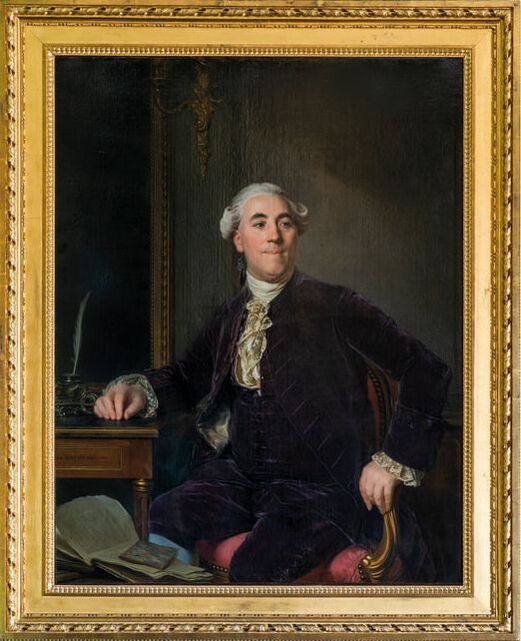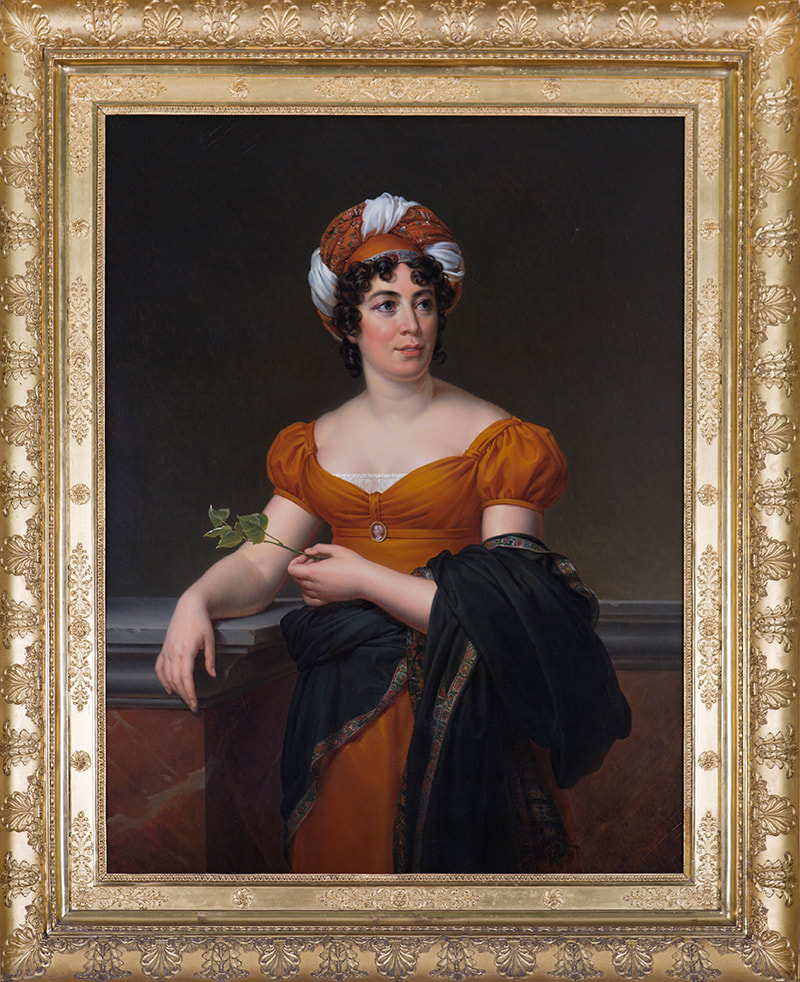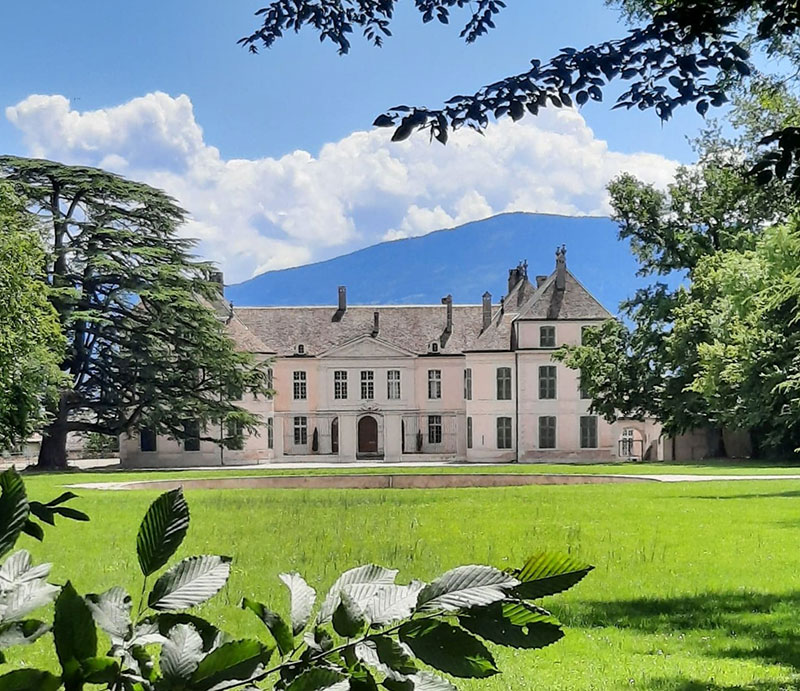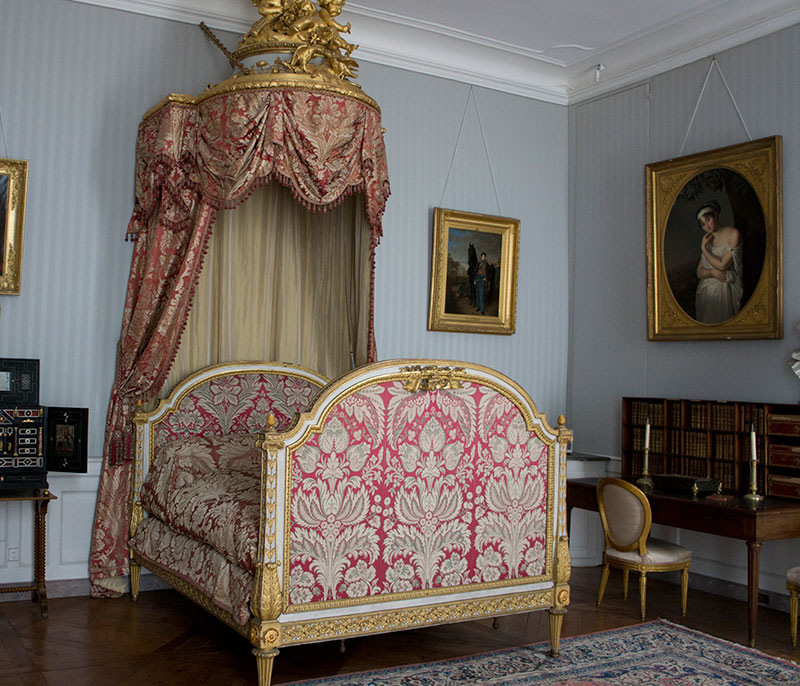|
Born in 1732 in Geneva, to a Protestant family of Prussian descent, Necker pursued a brilliant career in banking in Geneva and Paris.
His reputation and writings led him to be appointed by the King of France Louis XVI to the post of Director General of the Royal Treasury and then of Finance in 1776. He undertook a vast campaign of financial, social and administrative reforms but quickly came up against those threatening his projects (provincial parliaments, investors, pensioned nobility). Notably, having to finance France's participation in the American War of Independence, he launched a much criticised borrowing policy. He was dismissed in 1781 and retired to the Château of Coppet, which he bought in 1784. Recalled by the king in 1788, he was appointed Minister of Finance. At the height of a period of famine, he fought against speculation on the price of wheat and inspired the convocation of the Estates-General in 1789. He was dismissed shortly afterwards by the king, which led, together with other events, to the storming of the Bastille on the 14th of July and the beginning of the French Revolution. The king was forced to recall him, but Necker clashed with the Constituent Assembly and with Mirabeau. He had to resign in September 1790 and retired permanently to his château in Coppet, where he continued to write several politically based works. He died on the 9th of April 1804. He is buried next to his wife Suzanne, whom he loved dearly and whose Parisian salon, bringing together the great minds of the time such as Diderot, d'Alembert, Buffon, Marmontel, Grimm and Madame du Deffand, had a decisive influence on his career. His wife was the founder of the hospital for sick children in Paris, the Hospital Necker. |
|
Born on the 22nd of April 1766 in Paris, Germaine de Staël frequented her mother's salon at a young age, where her brilliant mind, cultivated outlook and lively conversation did not go unnoticed. In 1786, she married Baron de Staël-Holstein, the Swedish ambassador to the King of France.
A supporter of revolutionary ideas in 1789, she sought safety in Coppet during the Reign of Terror. She returned to France under the Directory and opened a salon in Paris in 1795. Fascinated by Bonaparte who rejected her advances, she soon realised his determination to govern with absolute power and became one of the strongest opponents of the first consul. Forbidden to stay in Paris in 1803, following the publication of her novel Delphine, she travelled to Germany and Italy, where she gathered material for her major works, Corinne ou l'Italie - Corinne or Italy and particularly for the essay De l’Allemagne - About Germany, which later caused her exile to Coppet in 1810. |
|
In Coppet, she brought together the great minds of her time, European political and literary personalities and members of the French and Swiss upper classes. She founded the Group of Coppet, an influential circle who fiercely debated intellectual and liberal opposition to the Empire.
In 1810, under Napoleon’s surveillance at the Château of Coppet and fearing for her safety, she managed to escape and began a long journey through Europe. Fleeing the imperial armies in Russia, she stayed in Saint Petersburg and Stockholm where she was received by Bernadotte. In London she met Louis XVIII. She returned to France during the First Restoration and began once more to pursue her political and literary activities. She died in 1817 of a cerebral hemorrhage and is buried at the Château of Coppet with her parents, in accordance with her wishes. |
Her life was marked by the consequences of her long opposition to Napoleon. Persecuted by the emperor and his secret police, she lived continually in fear for her children, her friends and for herself. Nevertheless, she resisted, from the Revolution to the Restoration, all forms of tyranny and oppression.
Her love of travel led her to visit much of Europe, where she met with the great personalities of her time. As a result, she explored and developed the principle of a Europe of liberal ideas, of religious freedom, of the right of women to self-determination and to the expression of their individual talents. She promoted the concept of literature and above all, inspired Romanticism in France. |













